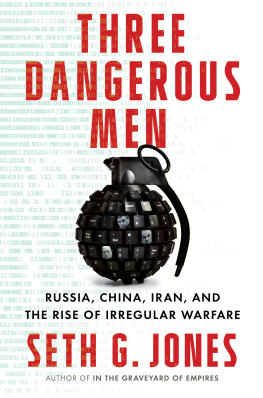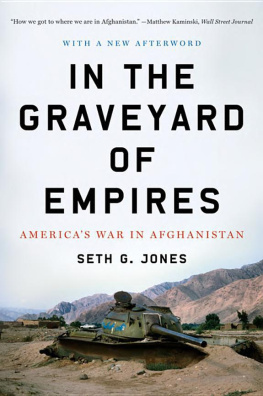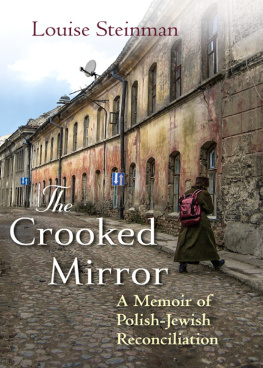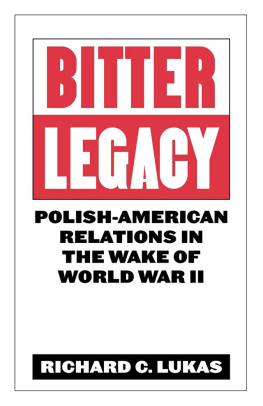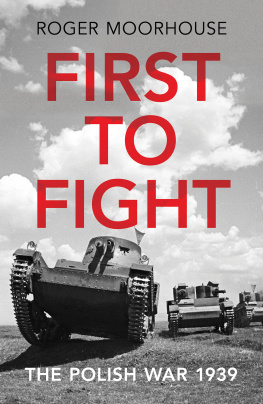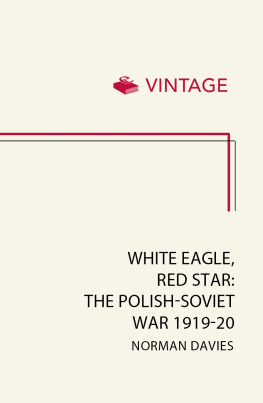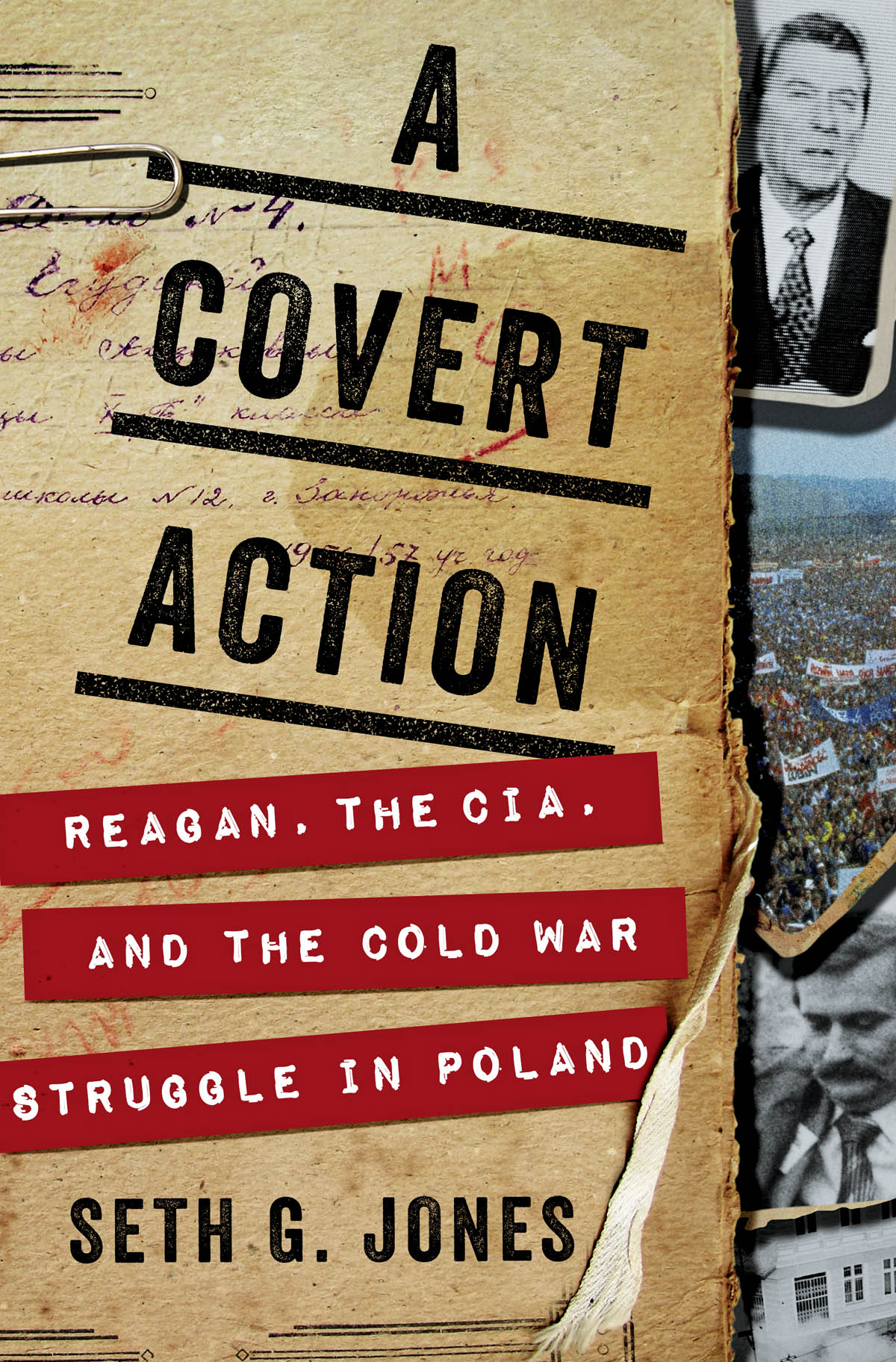Contents
Guide
Page List
REAGAN, THE CIA, AND THE COLD WAR STRUGGLE IN POLAND
Seth G. Jones

W. W. NORTON & COMPANY
INDEPENDENT PUBLISHERS SINCE 1923
NEW YORK LONDON
The Lord will give strength unto his people.
Psalms 29:11
Inscribed on a monument at the Gdask Shipyard in memory of those workers killed by Polish forces in December 1970.
Contents
A COVERT ACTION
I n the slanting light of Marylands Catoctin Mountain ridge, President Ronald Reagan stepped outside his cottage for a morning walk. It was December 12, 1981. The air was crisp and dry at Camp David. The temperature had dipped to freezing overnight, chilly for the former California governor.
For Reagan, Camp David provided solace from the oppressive pace of work and visitors back in Washington. That is precisely what President Franklin D. Roosevelt had in mind when he converted a campground for government employees and their families into a presidential retreat in 1942. Roosevelt named Camp David Shangri-La, the mythical utopia described by British author James Hilton in the 1933 novel Lost Horizon. The location was attractive for its seclusion. But Camp David wasnt lavish. British prime minister Winston Churchill had allegedly quipped that Camp David was in principle, a log cabin.
Roosevelt had named the Aspen Lodge, where Reagan stayed, The Bears Den. It had a quaint kitchen and a comfortable living room with stuffed furniture, where Reagan liked to relax in an easy chair with his spit-polished shoesor cowboy bootsperched atop a footstool. He and his wife, Nancy, would curl up there and watch movies: The African Queen starring Katharine Hepburn and Humphrey Bogart, North by Northwest with Cary Grant and Eva Marie Saint, and Yankee Doodle Dandy with the indomitable James Cagney. Aspen Lodge was situated atop a hill, and the living rooms oversized windows offered a magnificent view of Catoctin Mountain Park and the valley below.
Reagan briefly paused outside his door and soaked in the mornings tranquility. When he came to the White House in 1981, Reagan had embodied the raw optimism of Roosevelt and the small-town charm of Dwight Eisenhowerboth of whom he admired.
Honey, I forgot to duck, he had whispered to Nancy, almost apologetically, shortly before he was wheeled into the operating room at George Washington University Hospital.
After surviving the assassination attempt, Reagan faced a growing series of crises at home and abroad. Roughly 13,000 air-traffic controllers went on strike, threatening to shut down air travel in the United States. Overseas, Israeli forces launched periodic strikes into Lebanon as Reagan attempted to mediate an escalating crisis involving Israel, Syria, Lebanon, the Palestinian Liberation Organization, and Lebanese militias.
Back at Camp David, Reagan finished his walk and, feeling buoyant, returned to Aspen Lodge. At 12:10 p.m. that afternoon, he phoned the evangelist Billy Graham, a close friend, but couldnt get through. He spent the afternoon at his desk, reviewing paperwork.
It was peaceful at Camp David.

AN HOUR-AND-A-HALF DRIVE TO THE SOUTHEAST, CIA leadership was in a frenzy. At their headquarters in McLean, Virginia, CIA analysts had been monitoring events in Poland. They were scrambling to determine whether the Polish government, with Soviet support, was about to declare martial law. CIA director William Bill Casey realized that martial law, if enacted, meant that the Polish military would take charge of the country in an effort to crush Solidarity, Polands flowering democratic movement. With new emergency powers, the government would likely send tanks into the streets, take over radio and television stations, and round up Solidarity members. A direct confrontation on the edge of Eastern Europe between the forces of democracy and totalitarianism would trigger one of the most serious crises of the Cold War.
The Soviets were putting tremendous pressure on Polish prime minister Wojciech Jaruzelski (pronounced VOY-chi-ekh Ya-ru-ZELski) to act. The grassroots opposition movement led by Solidarity was potentially catastrophic for the Soviets. One CIA estimate said, Poland presents the USSR with the most threatening and complex challenge to its vital interests to emerge in the postwar period. The document also judged that the Soviet Union was making simultaneous preparations to deploy Red Army forces for a possible intervention in Poland, much like they had done in Czechoslovakia in August 1968 when Soviet forces quashed the political reform movement led by Alexander Dubek.
On the evening of December 12, word reached CIA headquarters that the Polish government had cut telephone communications between Poland and the West and closed the Polish border. The CIA sent out an alert to analysts assigned to the crisis, most of whom were comfortably at home on a Saturday night. Sensing the magnitude of the situation, CIA officials dashed back to headquarters and congregated in the Operations Center. CIA director Casey and his executive assistant attended the meeting, as did the director and deputy director of the Operations Center.
Casey took his seat at the table. With drooping jowls, stooped physique, and heavy rimmed glasses, Casey was easily the most powerful CIA director in a generation. He was an indefatigable opponent of Communism, determined to bloody Soviet noses around the globe. The group debated how to interpret the events and whetherand howto report them to the White House. Some argued that it might be just another localized crackdown, several of which had occurred in recent days. Others guessed that it could be the beginning of a full government takeover. Shortly after midnight in Washington and 6:00 a.m. in Poland on December 13, one CIA analyst left to see whether there were intelligence updates that had come in by classified cables from the CIA station in Warsaw.
He soon returned and silenced the room: Jaruzelski had just announced martial law. Washington and Moscow were now on a collision course in Poland.

ANXIETY BLANKETED WARSAW LIKE A THICK FOG, creeping into the citys neighborhoods, churches, and marketplaces. All week, Polands state-controlled television had broadcast apocalyptic tales depicting Poland as a country on the verge of collapse, a propaganda blitz that disquieted even pro-government sycophants. One television commentator described a mood of insurrection and tension. Appearing on Polish television at 6:00 a.m. on December 13, against the backdrop of the red and white Polish flag emblazoned with a coat of arms, Jaruzelski addressed the nation. He appeared stiff and formal in front of the camera, wearing a pressed, olive green military uniform with eleven neat rows of ribbons on his chest. With his chin thrust upward from his hollow face and thinning hair, Jaruzelski parsed his words carefully.
Our homeland is at the edge of an abyss, he said, his voice flat and his face nervously glancing down at his prepared notes. The achievements of many generations and the Polish home that has been built up from the dust are about to turn into ruins. State structures are ceasing to function. Each day delivers new blows to the waning economy. Poland was sitting on the verge of Armageddon, he explained. Strikes, strike alerts, protests have become standard. Even students are dragged into it. There are more and more examples of terror, threats, mob trials and direct coercion. Crimes, robberies and break-ins are spreading like a wave through the country. He then uttered the words that would earn him a villainous place in Polish history.


